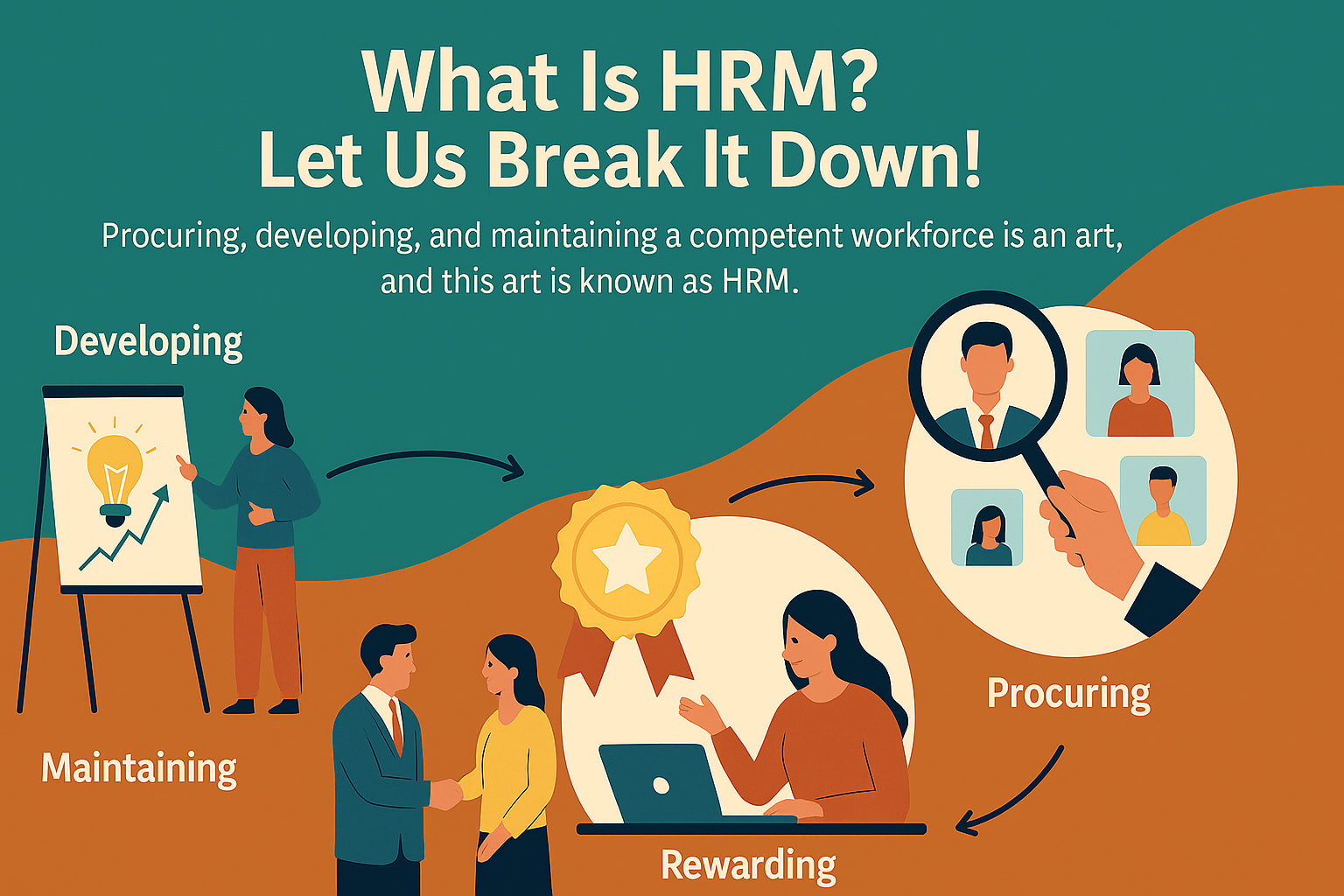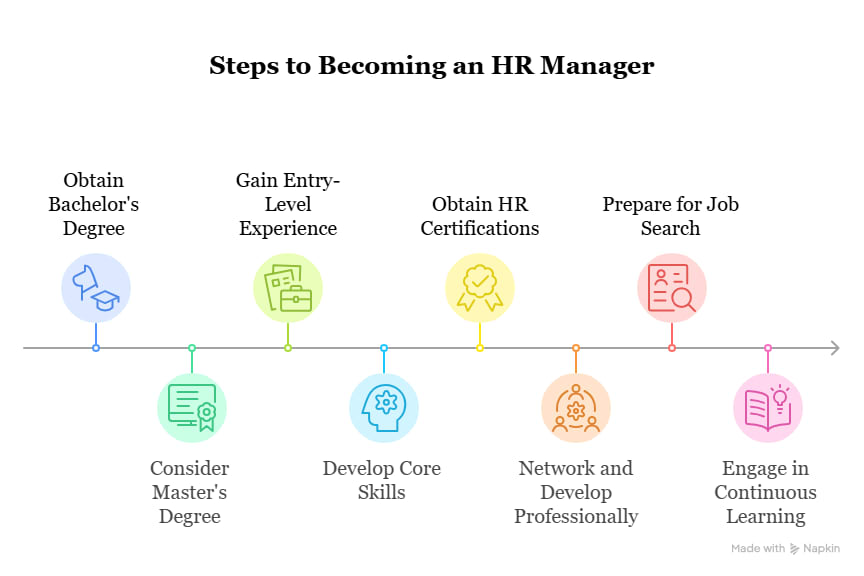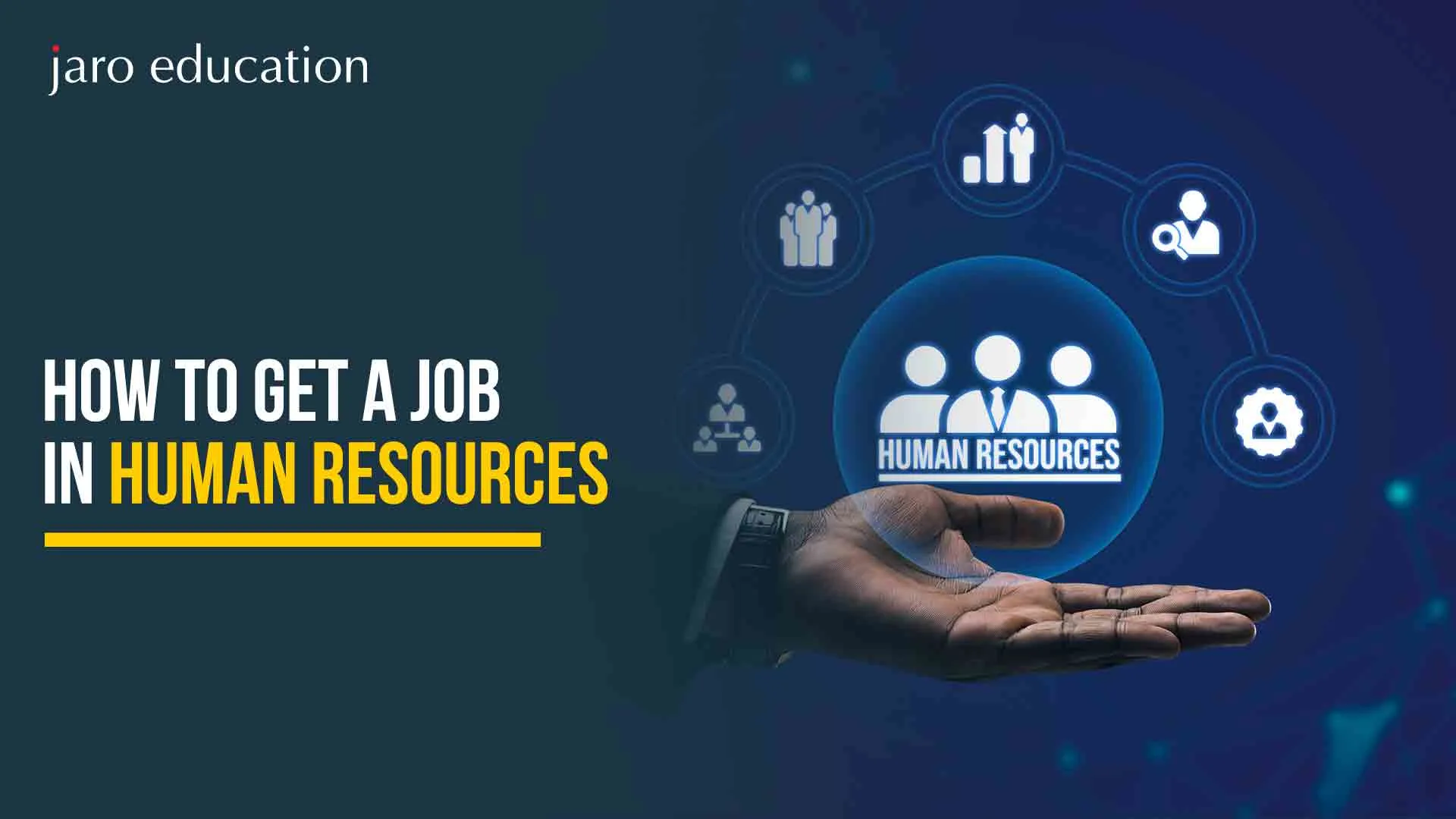What is Human Resource Management (HRM)? A Comprehensive Guide
Table of Contents

- jaro Education
- 30, March 2024
- 2:00 pm
All successful businesses have an underlying force that does not literally go around hiring the right professionals, nurturing them, and empowering them to grow.
Consider HRM (Human Resource Management) as the spine of a company—not merely a division that deals with recruitment and compensation, but a strategic business partner that develops the company culture, drives employee development, and puts people on track with a sense of purpose. As a student considering career paths, a new entrepreneur, or just an interested professional who wants to be armed with the most important concepts relating to the workplace, the knowledge of HRM can take over the way you look at work.
So here in this guide, we are going to delve into the meaning, roles, functions, and importance of HRM, as they relate to the real world, using simple words and with no mumbo-jumbo. At the end of the day, you will finally realize why HR management is not just about the policies; rather, it is all about the people power.
So, in order to get into the human aspect of business, let us do so.
What Is HRM? Let Us Break It Down!

Procuring, developing, and maintaining a competent workforce is an art, and this art is known as HRM.
To enhance the performance of organizational goals. The use of human beings in the process of developing their resources, utilizing, maintaining, and rewarding their service in harmony with job and organizational needs, from the perspective of serving the objectives of the organization.
DEFINITION
The human resource management meaning, according to Wendell L. French, goes beyond the context described in the words that it is a human work and therefore, it is incumbent on human beings to manage it. Philosophy, policies, procedures & practices of people management in an organization.
HRM involves the development of human capital, as described by Stephen P. Robbins. It focuses on growth, encouragement, and supporting people. Imagine building a company from the ground up—people, not just any people, but the right people in the right roles with the proper motivation. This is where HRM, or Human Resource Management, comes in.
Let’s go a step further: HRM isn’t just about resumes—it’s about the future of work!
What Is The Importance Of Business HR?
The concept of Human Resource Management (HRM) sector now plays the most important role in business success through the achievement of the management of an organization’s most valuable asset, its people. Strategic HR manager practices not only enhance employee satisfaction but also add significantly to profit and operational efficiency. The following are the ways that HR manager contributes to business success, with supporting statistics:
Relevance to the Organization:
The following ways are important to the organization because of HRM:
- Good HR practices assist in the retention and attraction of the best members of the organization.
- To take advantage of the latest technology, the appointment of the right type of personality of an individual is required. New jobs can fit the right people in them in a satisfactory way, just in case the management has done its HR role correctly.
- Globalization has enhanced the magnitude of organizations that hire more than thousands of people in various countries as employed. The work of the
- The firm relies on the attributes of individuals that it hires. This has added to the significance of the HRM even more.
- HR planning would warn the organization about the kind of people that they will require in the short, medium, and long run.
- The future challenge is the development of HR manager. Due to a lack of truly good human resources, the significance of HRM has grown.
Value to the workers
- HRM lays specific emphasis on motivating employees by offering them different financial and non-financial incentives.
- The right organizational climate is also emphasized in order that the employees can play the most important role in the attainment of the organizational goals.
- An excellent HR management contributes to teamwork and team spirit among employees.
- It provides good opportunities for growth to individuals with the capacity to ascend. It also inculcates in people diligence and commitment at their workplace.
Performance Management and Development
The HR manager is extensively involved in monitoring and improving employee performance through goal setting, appraisals, feedback, and professional development programs. It is through such a performance that the management system ensures that employees are continuously growing and contributing to the overall success of the organization. Areas that need improvement may be identified, and the strengths/resources of the employees can also be detected by the performance management systems in human resource management.
Training and Skills Development
The HR manager is at the core of making training and development available to employees so that they can strengthen their skills, remain relevant in their profession, and adjust to the changing demands of the industry. This renders the workforce more knowledgeable in human resource management and able to deal with problems when they arise.
Organizational Culture and Employee Relations
HR manager brings the very culture of the organization through policies designed to promote a good work culture, positive in every aspect. The management and resolution of conflicts, along with the establishment of a platform for open communication, closely align with the employees’ experience and shape the organizational culture accordingly. Such culture helps in boosting morale, loyalty, and overall employee performance.
Features of Human Resource Management
- Recruitment and Selection
The HRM process includes attracting, screening, and selecting qualified candidates to fill posts. This process helps the organization employ persons who have the requisite skills and would fit into the culture of the company for human resource management.
- Training and Development
Training and development are fundamental concepts within HRM, whose full form is human resource management. Organizations equip employees with training programs meant to develop their skills, knowledge, and competencies for better performance at work and career growth.
- Performance Management
The key factor of human resource management is the establishment of performance management systems that evaluate, provide feedback, and set goals for employee performance. This process is meant to acknowledge those employees who perform at the highest levels and identify those areas in which improvement is desired.
- Compensation and Benefits
Human resource management enters into all aspects of the design and administration of compensation and employee benefits. Salary administration, bonus systems, health insurance, pension plans, and other perks of the job that will attract and retain talent are included in these aspects.
- Employee Relations
Human resource management helps with all aspects of positive employee relations. It involves grievance handling, creating a collaborative work environment, and ensuring compliance with labor laws and regulations.
- Workforce Planning
Human resource management enables strategic workforce planning to ensure that the organization, at any given time, has the right number of workers with the right set of skills. This involves assessing the existing workforce capabilities and predicting future requirements.
- Diversity and Inclusion
Human resource management aims to establish diversity and inclusion in the workplace for a diverse workforce. This characteristic entails activities aimed at instituting respect and equality as corporate policies and practices.
- Compliance and Risk Management
HRM ensures that organizations operate under the law in hiring and minimize any attendant risks. These include keeping thorough records, conducting audits, and instituting policies that comply with labor standards.
- Organizational Development
Where human resource management intervenes in organizational development is as it relates to change management initiatives, while also working upon the overall improvement of the organizational culture and strategic effectiveness.
- Technology Integration
Implementation of technology in modern HRM is used for process automation, better communication, and data management. Human Resource Information Systems (HRIS) are used for efficient maintenance of records and data analysis.
Difference Between HRM And HRD
It is important to realize that there is a distinction between HRM and HRD and that the distinction is important to companies that are interested in managing and developing their workforce. Although both Human Resource Management (HRM) and Human Resource Development (HRD) are concerned with employees, their areas of interest, roles, and purposes are very different. HRM is a more inclusive concept since it encompasses every issue regarding people in the organization, whereas HRD, on the contrary, is only a component of HRM since it gives emphasis to the training and development of employees.
| Aspect | HRM (Human Resource Management) | HRD (Human Resource Development) |
|---|---|---|
| Definition | Deals with the overall management of human resources in an organization | Focuses on the training, development, and growth of employees |
| Scope | Broad—includes recruitment, payroll, performance, etc. | Narrow—mainly about learning, development, and career growth |
| Focus | Administrative functions and workforce management | Employee development and organizational learning |
| Objective | Efficient utilization of human resources | Enhancing employee potential and performance |
| Functions | Hiring, compensation, performance appraisal, and compliance. | Training, skill development, leadership development, mentoring |
| Approach | Reactive—solves existing HR issues | Proactive—focuses on future employee capabilities |
| Time Frame | Short- to medium-term goals | Long-term employee development |
| Responsibility | Managed by HR managers | May involve trainers, mentors, and learning & development teams |
| Relation | Encompasses HRD | Subset of HRM |
| Key Outcome | Organizational efficiency and stability | Talent development and innovation |
How to Become an HR Manager: A Step-by-Step Guide
Being an HR Manager is a mix of education, experience, and essential skills of working with people, policies, and the culture of work. And that is a step-by-step manual that should help you get an idea of how to become an HR Manager:

Step 1: Complete Your Education
Best Human Resource Management Course Online: Executive Development Programme in HR Analytics—XLRI Jamshedpur
With the revolutionary XLRI’s People Analytics Programme and Human Resource Analytics Programme, the HR manager function is completely different: data-driven. These equip HR manager professionals with an in-depth understanding of descriptive, predictive, and prescriptive analytics. The HR Analytics Program is mainly catered toward participants who may not be experts in math/statistics. It would be done primarily with SPSS and also through MS Excel at the beginning.
Qualifications:
For Indian participants—graduates (10+2+3) or diploma holders (only 10+2+3) from a recognized university (UGC/AICTE/DEC/AIU/State Government) in any discipline.
For international participants, graduation or an equivalent degree from any recognized university or institution in their respective country.
Experience:
HR professionals with a minimum of 2 years of work experience in the field of HR.
Non-HR professionals should have a minimum of 5 years of overall work experience.
Note: XLRI & Jaro Education reserves the right to cancel the candidature of any candidate at any point during the program for any misconduct or misleading information.
Step 2: Get the Real-Life Experience
Hop on Internships: Gain some experience as an HR manager by interning during your course in any organization.
Entry-Level HR Situations: Take up the job as an HR Assistant, Recruiter, or HR Executive to understand the fundamentals, such as
- Recording and hiring
- Employee relations
- Payroll and statutory
- Performance management
Step 3: Build Your Skills
| HR Manager Soft Skills | HR Manager Hard Skills |
| Communication | HR Software (e.g., SAP, Workday) |
| Conflict Resolution | Payroll & Labor Law Knowledge |
| Decision-Making | Data Analysis & HR Metrics |
| Empathy & Leadership | Policy Making & Compliance |
Step 4: Discover Top Career Strategies and Guidance with Jaro Education
At Jaro Education, we show you the way and the means through which your career targets become reachable. The support we provide is all-encompassing; whether you want a helping hand to further improve your skilled hands, pursue upward mobility in your occupation, or change fields, our team of mentors and industry professionals offers you solutions customized around your career objectives.
- Personalized Career Counseling: Counseling sessions tailored to match your education levels toward your professional goals
- Industry-Relevant Programs: These programs will get you advanced programs and certifications to arm you with the competencies that are needed today.
- Job Placement Support: We provide placement support and internships through our tie-up with the best corporations involved in blocking a specific career path.
- Support in All Phases: Continues to end in mentorship and access to the networks necessary to sculpt that career and hone skills to fit in with the ever-changing labor market.
At Jaro Education, education isn’t just a foundation; it is a reference and a tool to build a career on. Allow us to help you realize your potential and take the next step in your career.
Conclusion
That is, effective management of the company’s most important asset—its people—will determine whether the company will be a success or a failure. HRM brings together a multiplicity of functions, from recruitment to the development of employees to performance management and compliance with the labor act. Through aligning human resources with organizational goals, HRM serves not only to enhance operational efficiency but also to create a positive workplace culture that takes employees’ satisfaction and productivity to an even higher level.
The impact of HRM becomes even more critical since business HR is grounded in the evolving competitive environment, where they have no choice but to keep up with the times. However, HRM enables organizations to get proper human assets, develop their capacity, and follow new market values and trends. So it is for strategic management of the company’s people, since its efficiency in this is effective for the long term, increases innovation, and ensures that the organization does not stagnate.
Frequently Asked Questions
HRM is the process of hiring, training, managing, and retaining employees in an organization. It also involves handling employee relations, compensation, benefits, and legal compliance.
The core functions include:
- Recruitment and selection
- Training and development
- Performance management
- Compensation and benefits
- Employee relations
- Compliance with labor laws
HRM ensures the right people are hired, helps them perform well, keeps them engaged, and ensures compliance with employment laws. It plays a key role in building company culture and supporting business goals.
- HRM (Human Resource Management) focuses on overall employee management.
- HRD (Human Resource Development) is a sub-function that focuses on training, skill development, and learning.
- A Bachelor’s degree in HR, Business, Psychology, or related field
- Optional: MBA in HR or certifications like SHRM, PHR, etc.
Some HR tasks (like payroll, attendance, and recruitment tracking) can be automated using HR software, but core HR activities like interviews, employee relations, and leadership require human involvement.
HR designs and implements wellness programs, feedback systems, rewards, and career development plans to keep employees motivated and loyal.
Popular tools include:
- Zoho People
- Workday
- SAP SuccessFactors
- BambooHR
- Keka (India-focused)
Yes! HR is a growing field with diverse opportunities in recruitment, learning & development, payroll, and employee engagement. It suits those who are good at communication, decision-making, and people management.










